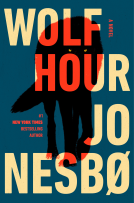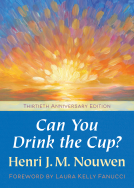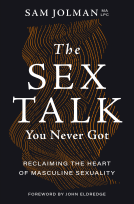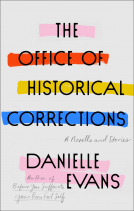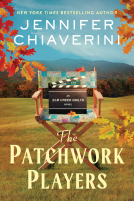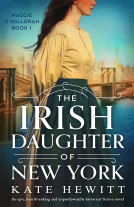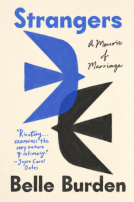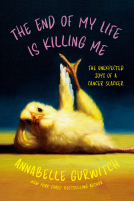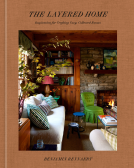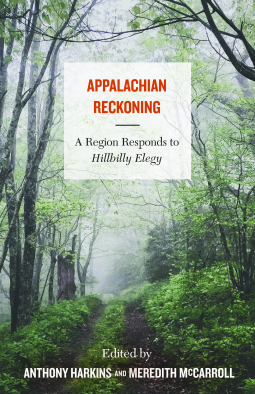
Appalachian Reckoning
A Region Responds to Hillbilly Elegy
by Edited by Anthony Harkins and Meredith McCarroll
This title was previously available on NetGalley and is now archived.
Send NetGalley books directly to your Kindle or Kindle app
1
To read on a Kindle or Kindle app, please add kindle@netgalley.com as an approved email address to receive files in your Amazon account. Click here for step-by-step instructions.
2
Also find your Kindle email address within your Amazon account, and enter it here.
Pub Date Mar 01 2019 | Archive Date May 15 2019
Talking about this book? Use #Appalachianreckoning #NetGalley. More hashtag tips!
Description
With hundreds of thousands of copies sold, a Ron Howard movie in the works, and the rise of its author as a media personality, J. D. Vance’s Hillbilly Elegy: A Memoir of a Family and Culture in Crisis has defined Appalachia for much of the nation. What about Hillbilly Elegy accounts for this explosion of interest during this period of political turmoil? Why have its ideas raised so much controversy? And how can debates about the book catalyze new, more inclusive political agendas for the region’s future?
Appalachian Reckoning is a retort, at turns rigorous, critical, angry, and hopeful, to the long shadow Hillbilly Elegy has cast over the region and its imagining. But it also moves beyond Hillbilly Elegy to allow Appalachians from varied backgrounds to tell their own diverse and complex stories through an imaginative blend of scholarship, prose, poetry, and photography. The essays and creative work collected in Appalachian Reckoning provide a deeply personal portrait of a place that is at once culturally rich and economically distressed, unique and typically American. Complicating simplistic visions that associate the region almost exclusively with death and decay, Appalachian Reckoning makes clear Appalachia’s intellectual vitality, spiritual richness, and progressive possibilities.
A Note From the Publisher
T. R. C. Hutton, Jeff Mann, Dwight B. Billings,
Elizabeth Catte,
Theresa Burriss,
Ricardo Nazario y Colón,
Roger Guy,
Lisa R. Pruitt,
Lou Murrey,
Travis Linnemann and Corina Medley,
Ivy Brashear,
Crystal Good,
Michael E. Maloney,
Dana Wildsmith,
Kelli Hansel Haywood,
Allen Johnson,
Danielle Dulken,
William H. Turner,
Jesse Graves,
Meredith McCarroll,
Rebecca Kiger,
Kirstin L. Squint,
Richard Hague,
Jeremy B. Jones,
Edward Karshner,
Luke Travis,
Robert Morgan,
Chelsea Jack.
Robert Gipe,
Roger May,
Keith S. Wilson,
Rachel Wise,
Kelly Norman Ellis,
Jim Minick,
Linda Parsons,
Meg Wilson,
Jodie Childers,
Dale Marie Prenatt,
Elizabeth Hadaway
Advance Praise
“In this illuminating and wide-ranging collection, the authors do more than just debunk the simplistic portrayal of white poverty found in Hillbilly Elegy. They profoundly engage with the class, racial, and political reasons behind a Silicon Valley millionaire’s sudden triumph as the most popular spokesman for what one contributor cleverly calls ‘Trumpalachia.’ This book is a powerful corrective to the imperfect stories told of the white working class, rural life, mountain folk, and the elusive American Dream.”
Nancy Isenberg, author of White Trash: The 400-Year Untold History of Class in America
“So often the song of this place has been reduced to a single off-key voice out of tune and out of touch. Appalachian Reckoning is the sound of the choir, pitch perfect in its capturing of these mountains and their people. This book is not only beautiful, but needed.”
David Joy, author of The Line That Held Us
“This edited volume continues the rich Appalachian studies tradition of pushing back against one-sided caricatures of Appalachian people. The essays, poems, and photo-essays in this book demonstrate the diversity of Appalachian perspectives on the serious problems facing our nation as well as the role that myths about Appalachia continue to play in US policy debates. This is a must-read for everyone who read (or refused to read) J. D. Vance’s deeply flawed, best-selling memoir, Hillbilly Elegy.”
Shaunna Scott, University of Kentucky
Available Editions
| EDITION | Paperback |
| ISBN | 9781946684806 |
| PRICE | $28.99 (USD) |
Average rating from 33 members
Featured Reviews
 Educator 194902
Educator 194902
I'm so grateful for this book. As a community member and a social sciences professor at a college in a rural and impoverished county, I was so frustrated with the easy acceptance and celebration of Vance's Hillbilly Elegy. Appalachian Reckoning counters this with consideration, familiarity with wider literature and research, and the bringing together of various voices -- rather than a self-appointed one to speak for all.
Thoughtful and well-arranged. I am a rural educator and appreciated this reply to a less than pleasing vision of Appalachia. This is a book I enjoyed, was able to navigate with ease because of the organization, and will use in my own work about this region.
Highly recommended for readers who are interested in a vision of rural life that is balanced, erudite, and well-rounded. This book is scholarly and accessible.
 Librarian 525668
Librarian 525668
This is a nice academic response to Vance's Hillbilly Elegy. If a reader is expecting an equal memoir to Vance's Elegy, this book is not it. The authors/editors, Harkins and McCarroll are both well-respected in their fields and the book is well-researched. This book contains various perspectives of Appalachian people on the issues they face and the long-held myths that are believed about their area. As an educator, I would recommend this book for anyone that wants to develop more awareness about various cultures and cultural norms. As a native Kentuckian, I would like to have seen more varied perspectives within the book. I would like to thank the publisher for an advanced copy of this wonderful book to review.
 catherine h, Reviewer
catherine h, Reviewer
Point well taken. I read the Vance book and didn't give to much thought to the whole, if that makes any sense. I live in the Rust Belt, yet I wouldn't categorize the entire region as down and out, illiterate, etc... I, and many others, are educated and solidly middle class, though maybe not living in McMansions, or driving luxuary cars, etc... Appalachia isn't any different. And it's always been made of many different ethic groups. Over all, I did enjoy the book, and the backlash to it caught me by surprise! In hind sight, I guess the book was a gross generalization of the region.
I enjoyed this book, too, though. Lots of new perspectives- always a good thing! Poetry, too. Nice collection of views and opinions, covers a nice cross section of society.
What has struck me about both books though is the opioid crisis in Appalachia. 40-50 years ago, I don't recall the inner city heroin crisis getting quite as much attention. And I don't think the opioid issue id limited to or greater in Appalachia than anywhere else. I read the crisis was worse in Ohio, in general, than anywhere else, but N.E. Ohio certainly isn't Appalachian.
I'm guessing there will always be social problems and not all will be solved. Some folks will just get lucky breaks, through both dogged determination, being i the right place at the right time, hard work, etc...Sometimes the gods just smile on someone. Both books have merit in my opinion and I found both enlightening.
A thorough compilation of various reflections on life and the experience of Appalachia and responses to the portrayal of Appalachia and its culture in J.D. Vance's "Hillbilly Elegy."
The response to the book is generally critical: the contributors recognize the work as reflective of Vance's personal experience, but they (rightly) take him to task for reinforcing stereotypes in his work, reducing a group of people to a cultural caricature, completely neglecting the experiences of people of color and others in the region, and using the whole story to push a particular political ideology without a full reckoning of the many factors which have led to dysfunction in many Appalachian communities. The authors are also critical of the response to Vance's work, since it tends to reinforce stereotypes and the socio-cultural hierarchies already in place: look at all those poor little people over there in their dysfunctional culture; this is why Trump was elected; etc. A few of the contributors do well at tracing how Vance's work is just one in a series which has done the same thing to the way people look at Appalachia.
The work instead embodies a much more holistic and nuanced portrayal of Appalachia, from those who grew up and stayed, from those who grew up and left, and those who grew up, left, and returned. We hear the experiences of people of color in Appalachia. We hear from those who experienced its religion or the lack thereof; we hear from those who grew up in dysfunction and from those whose family lives were healthier. People's flaws are very apparent - but we also see many of their virtues, their perseverance, and the ability to look at the culture without pathologizing it.
One walks away from this book with a much better view of what Appalachia is all about, although even here the work is still somewhat academic, written by what is ultimately the elite to explain the land to the elite elsewhere. But so such studies go.
If you really liked "Hillbilly Elegy," you owe it to intellectual honesty and integrity to consider this work and use it to balance how one views and speaks of Appalachia.
 Lou D, Reviewer
Lou D, Reviewer
Some really good writing about life in the appalachians. Nicely laid out so you can read as you want.
 Nan W, Reviewer
Nan W, Reviewer
This book was advertised as being a response to “Hillbilly Elegy” which has received such acclaim. I guess it was, but it was really much more than that and gave more scholarly research and information. The author compares and contrasts the information in Hillbilly Elegy with other works written about the same area in Kentucky (or similar areas in W. Virginia), notably the Pulitzer Prize winning journalistic series by Eric Eyre and “Methland” by Nick Reding. It’s an interesting and scholarly treatise and worthy of study and debate.
I received this Kindle edition as an ARC from NetGalley and the publisher, West Virginia University Press, in exchange for an honest review.
 Abby S, Reviewer
Abby S, Reviewer
I am a native New Yorker Appalachia and it’s people I’d far from my daily life & ive always been curious about the people their lives.I read Hillbilly Elegy and can understand why they might not feel this is fair portrait of their loves.These essays gave me another eye opening view of what they feel life there is truly about.#netgalley#westvirginiaupress
Appalachian Reckoning: A Region Responds to Hillbilly Elegy, is a work of academia that is a vast and thoroughly researched compilation of responses to the portrayal of Appalachia and its culture by J.D. Vance in Hillbilly Elegy. These responses consist of various reflections on life and the experience of Appalachia. It is an interesting treatise.
In general the responses to Hillbilly Elegy Set forth in this work are critical. While acknowledging the personal nature of Vance's experience as portrayed in his book, the contributors admonish him for reinforcing stereotypes and reducing a group of people to a cultural caricature.
This book portrays Appalachia as a whole. Presenting the perspectives of those who have lived there all their lives as well as those who have left and returned. We are presented with a culture of both dysfunctional families, and those of close knit healthy familial relationships. We also hear from the people of color in Appalachia, a viewpoint notably absent from Hillbilly Elegy.
Thank you to NetGalley and West Virginia University Press for the free e-ARC in exchange for my honest review.
 Dee Dee (or DeeDee673 M, Reviewer
Dee Dee (or DeeDee673 M, Reviewer
This book is not for the casual reader. Recommend only if you have a keen interest in the Appalachian region history, people and current conditions in that area of the US.
It is written in response to another book that details someone's personal experience of living in Appalachia. I must admit I basically skimmed the book since it is so academically inclined and failed to hold my interest. I gave it 4stars since there was obviously a great deal of research involved.
This book would be a great source for study for course in political science, history or studies of the social sciences.
Thanks to the author,publisher & NetGalley for the ARC.
The opinions expressed are my own.
Written in direct response to Hillbilly Elegy, this collection’s strength lies in the diversity of its selections. If this had been merely a series of scholarly essays condemning J.D. Vance’s much-discussed memoir, it could’ve been seen by some as a tired, progressive rant. Instead, it is a varied collection of essays, photographs, poetry, and personal accounts by Appalachian scholars, writers, poets and others who represent a variety of experiences across the Appalachian region. Eye-opening and enlightening, especially to readers who never considered the fact that there might be another side to the Appalachian narrative. Stories such as these need to be shared alongside that of Hillbilly Elegy, to avoid a continuing stereotypical view of Appalachia, and to show the diversity of experiences in the region. An outstanding collection of voices and viewpoints and a fascinating, enjoyable read. I received an advanced review copy from NetGalley in exchange for a fair review of this publication.
 Tonstant W, Reviewer
Tonstant W, Reviewer
When Hillbilly Elegy came out, it landed like a thunderclap, perhaps because it was released during the 2016 election and was perceived as an explanation of the inexplicable popularity of Donald Trump. I put it on hold at the library, but before I read it, I listened to a few interviews with him on television and canceled my hold on the book. It was clear he was just one more advocate for abandoning the poor, only this pathologizing the white working class of Appalachia based solely on his own family experience. Nonetheless, the stereotypes in Vance’s book have proven popular and enduring, so I was very interested in reading Appalachian Reckoning, a collection of responses to the book, from academic rebuttals and personal essays to poetry and photography.
From the Protestant Work Ethic to the Prosperity Gospel, the god everyone worships is wealth and the greatest sin is poverty. America’s civic religion is Horation Algerism. This makes it very profitable to comfort the comfortable by telling them they need not feel compassion for those who struggle because it’s their own fault, their bad choices, their addiction to drugs, their failure to get a good job, and their cultural poverty. We hear it again with every generation and Vance hit a sweet spot just in time. We who are on the left and right can have smug contempt for Trump voters because they are uneducated, racist, lazy, hillbillies on opioids. According to R. C. Hutton points out “the book is aimed not at that underclass (few books are), but rather at a middle- and upper-class readership more than happy to learn that white American poverty has nothing to do with them or with any structural problems in American economy and society and everything to do with poor white folks’ inherent vices.” Yup.
Appalachian Reckoning restores the variety, vitality, and value of the people of Appalachia. The book includes several poems and photos and personal essays recounting the richness of that culture. The people of Appalachia are not culturally deficient. How much of our cultural heritage is sourced in those mountains? These are people who dared strike against the coal barons, whose Peabody coal strike is memorialized in song and film, and whose culture has fostered the Foxfire Magazine and book series (My parents had all the books.) Country music would not exist without its Appalachian origins.
I recommend reading Appalachian Reckoning in small bites rather than all at once because a collection of articles and essays critiquing one book naturally becomes a bit repetitive. How many ways can you say that Hillbilly Elegy works as a memoir, but as sociology, it fails? Nonetheless, I hope every person who read the original book would read this rebuttal because this book sees the humanity and complexity of a region and does not do the disservice of telling people whose jobs have been erased, whose land and rivers have been poisoned, and who are in despair that they problems they have are because they are weak, lazy, and ignorant.
Appalachian Reckoning will be released on March 1st. I received a copy of Appalachian Reckoning from the publisher through NetGalley.
Appalachian Reckoning at West Virginia University Press
Anthony Harkins faculty page
Meredith McCarroll Chronicle Vitae
 Linda S, Librarian
Linda S, Librarian
APPALACHIAN RECKONING: A Region Responds to Hillbilly Elegy is edited by Anthony Harkins and Meredith McCarroll. Describing this as a "book born out of frustration ... a book born out of hope," the editors set out to gather essays, images and poetry to respond to J. D. Vance's bestselling (and soon to be movie) Hillbilly Elegy. Harkins is a professor of history at Western Kentucky University and McCarroll is the director of writing and rhetoric at Bowdoin College. Both have written extensively about Appalachia, but this collection is a bit uneven, ranging from overly scholarly responses to personal stories. Harkins and McCarroll split the book into two sections, with the first part offering selections "directly assessing or commenting on the words and impact of Vance's influential work." Part II is titled "Beyond Hillbilly Elegy" and they say, "there is no singular focal point to part II other than the shared idea that there is no consensus about Appalachia."
Still, this collection deserves a look, especially as many of our students read and discuss Vance's work for class assignments. For example, Robert Morgan (who teaches at Cornell and is a best-selling novelist and poet) is amongst the many contributors who are described in brief bios. This text strives to offer new perspective - like William H. Turner’s (Prairie View A & M) commentary on African American Appalachians – a group he says "Vance ignored." Other writers contend that Vance reinforced stereotypes and, like Lisa Pruitt (UC, Davis), note that while his is "a tale that affirms our nation’s core values and aspirations," it "does not foster understanding or empathy for those Vance left behind; rather it cultivates judgment." Also thought-provoking is "public historian" Elizabeth Catte's contribution exploring Hillbilly Elegy's use as an instructional text. APPALACHIAN RECKONING received a starred review from Kirkus.
Readers who liked this book also liked:
L.M Montgomery
Children's Fiction, Comics, Graphic Novels, Manga, Teens & YA
Jenny Colgan
General Fiction (Adult), Parenting, Families, Relationships, Women's Fiction
Annabelle Gurwitch
Biographies & Memoirs, Health, Mind & Body, Humor & Satire
Benjamin Reynaert
Arts & Photography, Home & Garden, Reference


